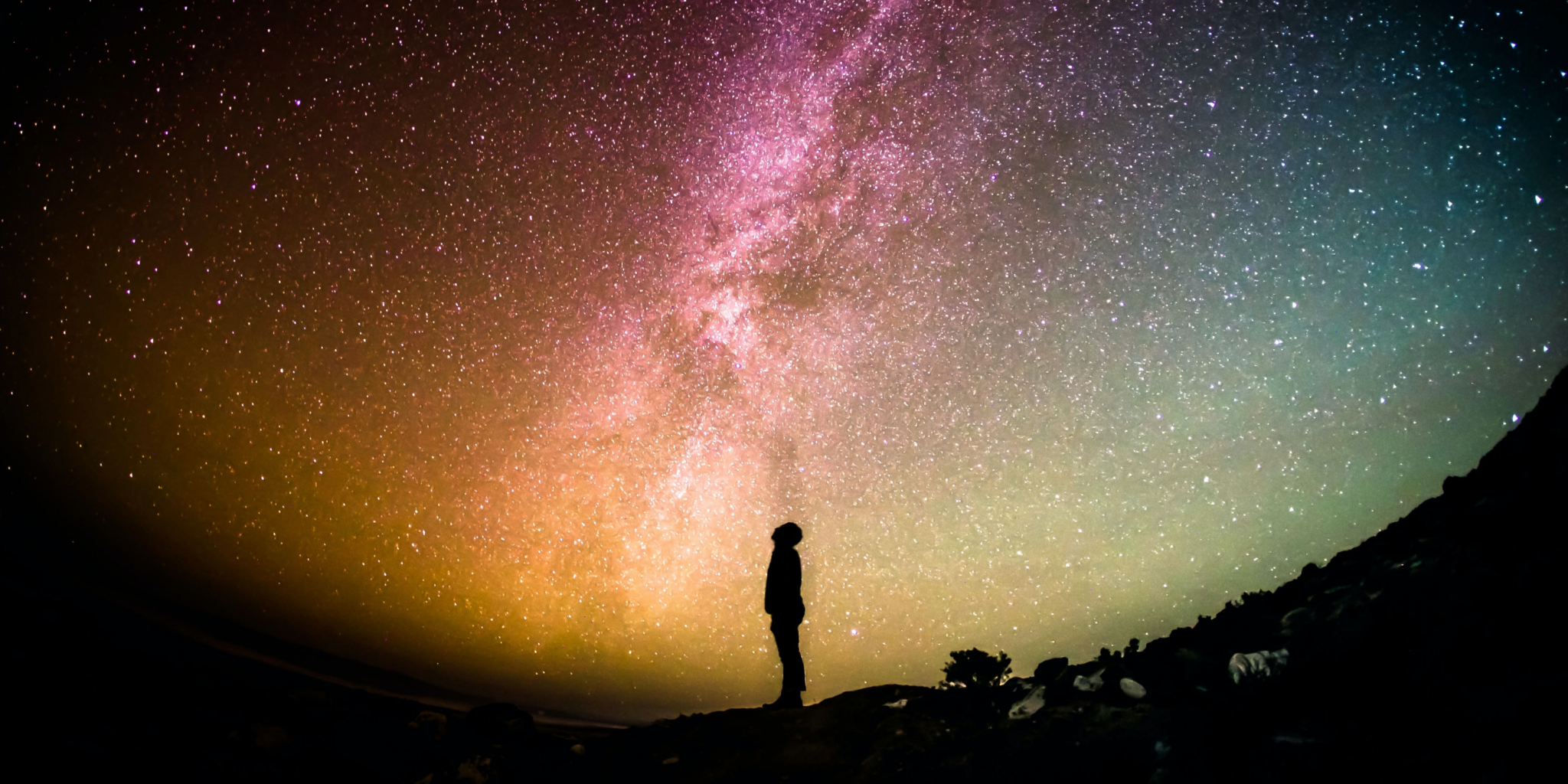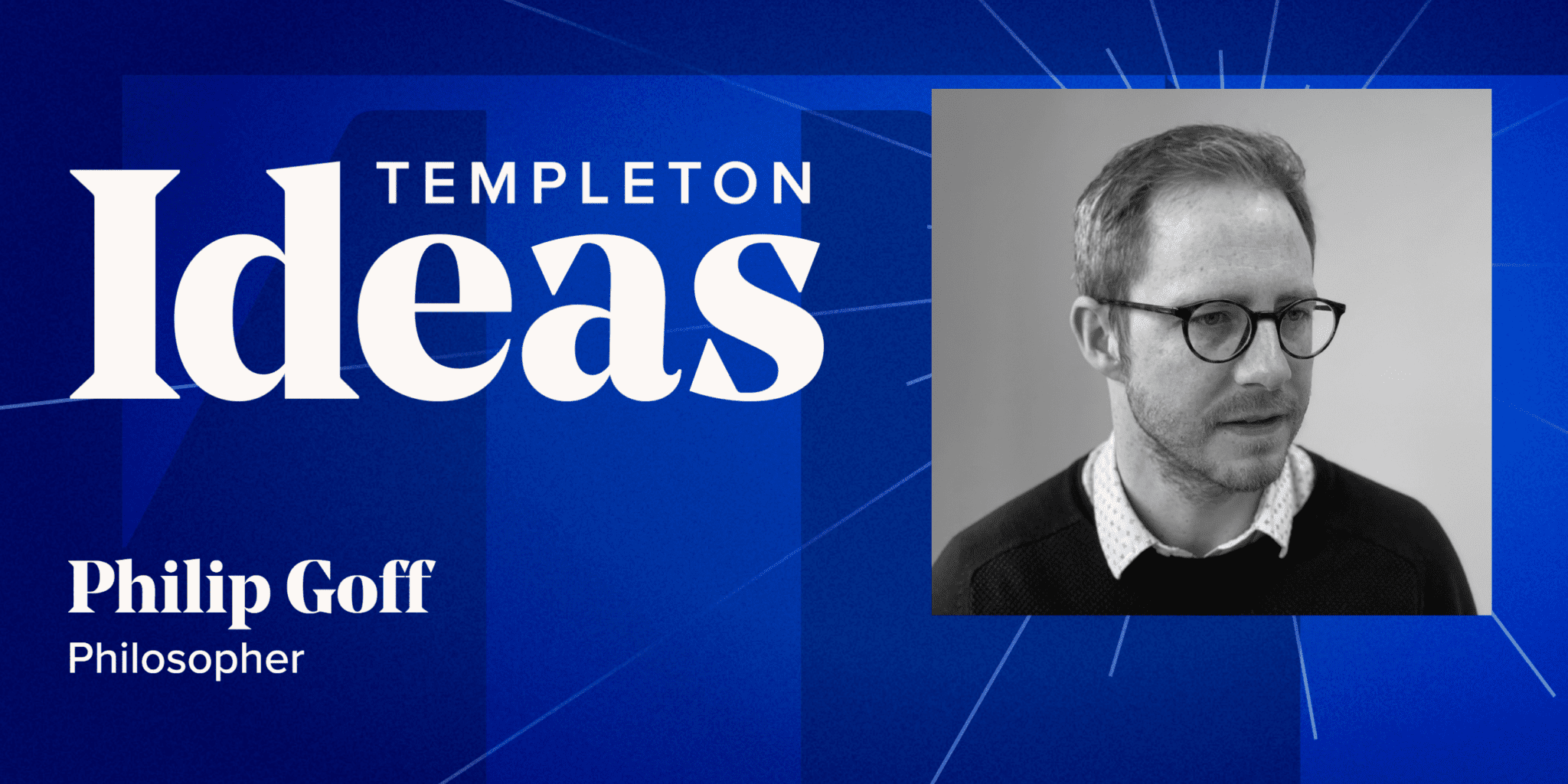Editor’s Note: Philip Goff is a philosopher and consciousness researcher at Durham University, UK. His new book, Why? The Purpose of the Universe is available now. The conversation has been lightly edited for clarity.
Burnett: Why does it feel almost transgressive to propose that the universe may have a purpose?
Goff: I think it’s a bit like in the 16th century when we started getting evidence that we weren’t in the center of the universe, and people struggled to accept it because it didn’t fit with the picture of reality they’d gotten used to. Nowadays people mock our ancestors for their stubborn inability to follow the evidence where it leads. But I think every generation absorbs a worldview they can’t see beyond, and I think that’s what’s going on now with the fine-tuning of physics. For a couple of hundred years there was no evidence for cosmic purpose, and so we got into this mindset that science has ruled out anything like that. The evidence has now changed, but it takes time for the culture to catch up. I honestly believe future historians will look back at us and think it’s bizarre that we ignored what was in plain sight for so long.
If a hard-nosed, sceptical scientist wanted to examine evidence that points to cosmic purpose, where is the first place they should look?
In terms of empirical science, I focus on the fine-tuning of physics for life, the surprising discovery of recent decades that for life to be possible, certain numbers in physics had to be – like Goldilocks’ porridge – “just right.” For example, if dark energy – the force that powers the expansion of the universe – had been a little bit stronger, no two particles would have ever met, meaning no stars, planets, or any type of structural complexity. But if it had been significantly weaker, the universe would have collapsed back onto itself in the first split second of the big bang. For life to be possible, the strength of the force had to fall in a certain, narrow range. This is just one example among many.
Ultimately, we face a choice. Either it’s just an incredible fluke that the numbers in our physics are right for life. Or the numbers in our physics are as they are because they are the right numbers for life; in other words, there is some kind of goal-directedness towards life at the fundamental level of reality. That’s weird, and it’s not how we expected science to turn out. But we should set aside our biases – both religious and secular – and just follow the evidence where it leads.
In your book you lay out three different scenarios in which a universe could display purpose—what are those options?
Some people use fine-tuning to argue for the God of traditional Western religion. But I think this view struggles to explain the terrible suffering we find in the world. The project of my book is to find a view that can accommodate both fine-tuning and suffering.
The most straightforward way of doing this is to tweak the nature of God. Maybe the creator of our universe is bad, or amoral, or has limited abilities and has made the best universe she can. Or maybe we live in a computer simulation created by some random software engineer in the next universe up.
But it’s not obvious that you need a conscious mind to undergird cosmic purpose. Maybe cosmic purpose is rooted in special laws of nature: teleological laws, with purposes built into them. There could simply be an impersonal tendency in nature that directs the universe towards the emergence of life, a tendency that interacts with the more familiar laws of physics in ways we don’t yet fully understand.
Finally, I develop a form of cosmopsychism, the theory that the universe itself is a conscious mind with its own goals and purposes. This sounds very extravagant, but I argue that cosmopsychism turns out to be a surprisingly parsimonious view.
What kinds of purpose could a universe like ours contain?
It’s not only fine-tuning I focus on, but also the deep challenge of accounting for the emergence of consciousness. Based on both of these considerations, I think we have evidence that the universe is directed towards the emergence of life, intelligent life, and creatures with conscious understanding of the world around them. It’s possible that’s all it is – “that’s all folks,” as Porky Pig used to say. But if you do believe in cosmic purpose, is it likely that we happen to live at its final culmination? I think it’s more probable that the purpose of the universe is still unfolding, in ways we don’t yet fully understand.
If cosmic purpose did exist, what obstacles must we overcome in order to discover it?
While I think we have strong evidence for some kind of cosmic purpose, any definite statement about it is inevitably incredibly speculative and uncertain. But I agree with the great philosopher and psychologist William James that it can be rational, to a limited extent, to hope beyond the evidence. As believers in cosmic purpose – or “cosmic purposivists” – we can hope that our efforts to make the world a better place – to fight for justice globally and to improve ourselves spiritually – contribute in some small way to advancing the purposes of the universe. In Why? I explore how cosmic purpose might relate to spiritual practice, spiritual communities, and political struggle.
Could a cosmic purpose relate in some practical way to our day-to-day lives?
I don’t want to be dogmatic about the “One True Way” of living a meaningful life. And certainly many people live lives of meaning and purpose without any consideration of cosmic purpose. But I can say in my own case, I’ve found cosmic purposivism to be a deeply meaningful way of living, to see the small amount of good I do as contributing, in some incremental way, to a greater purpose. It stops me from focusing narrowly on my self-interest and keeps my ego in check. I’d like readers of my book to consider this option that’s neither traditional religion nor secular atheism. You never know, it might be something that works for you.
Philip Goff is the project leader of the JTF-funded grant “Panpsychism and Pan(en)theism: Philosophy of Mind meets Philosophy of Religion.” Goff also hosts the “Mind Chat” Podcast.




